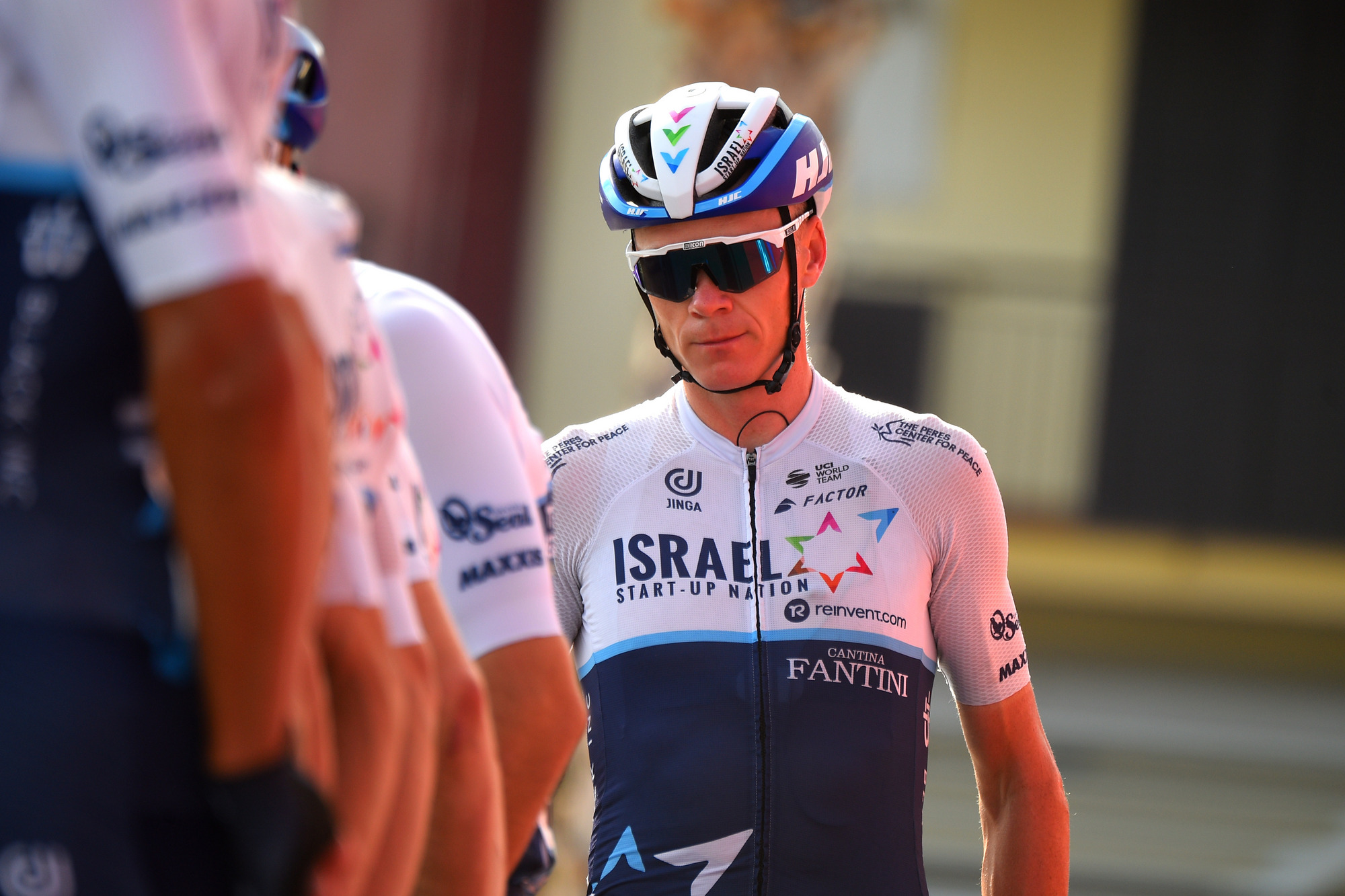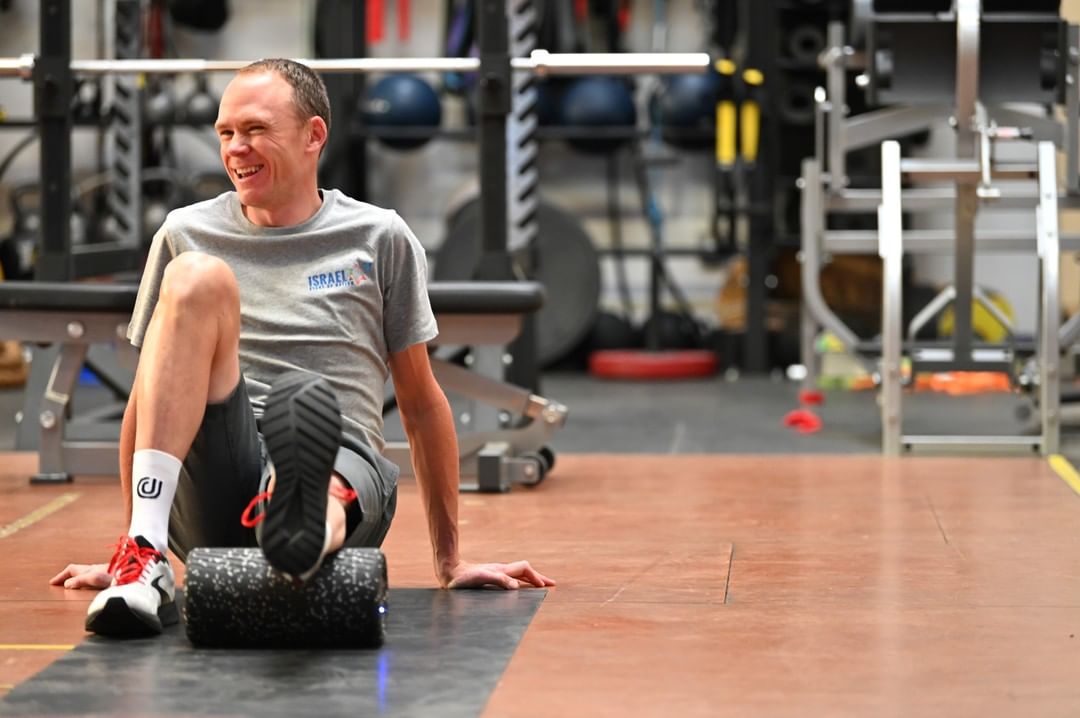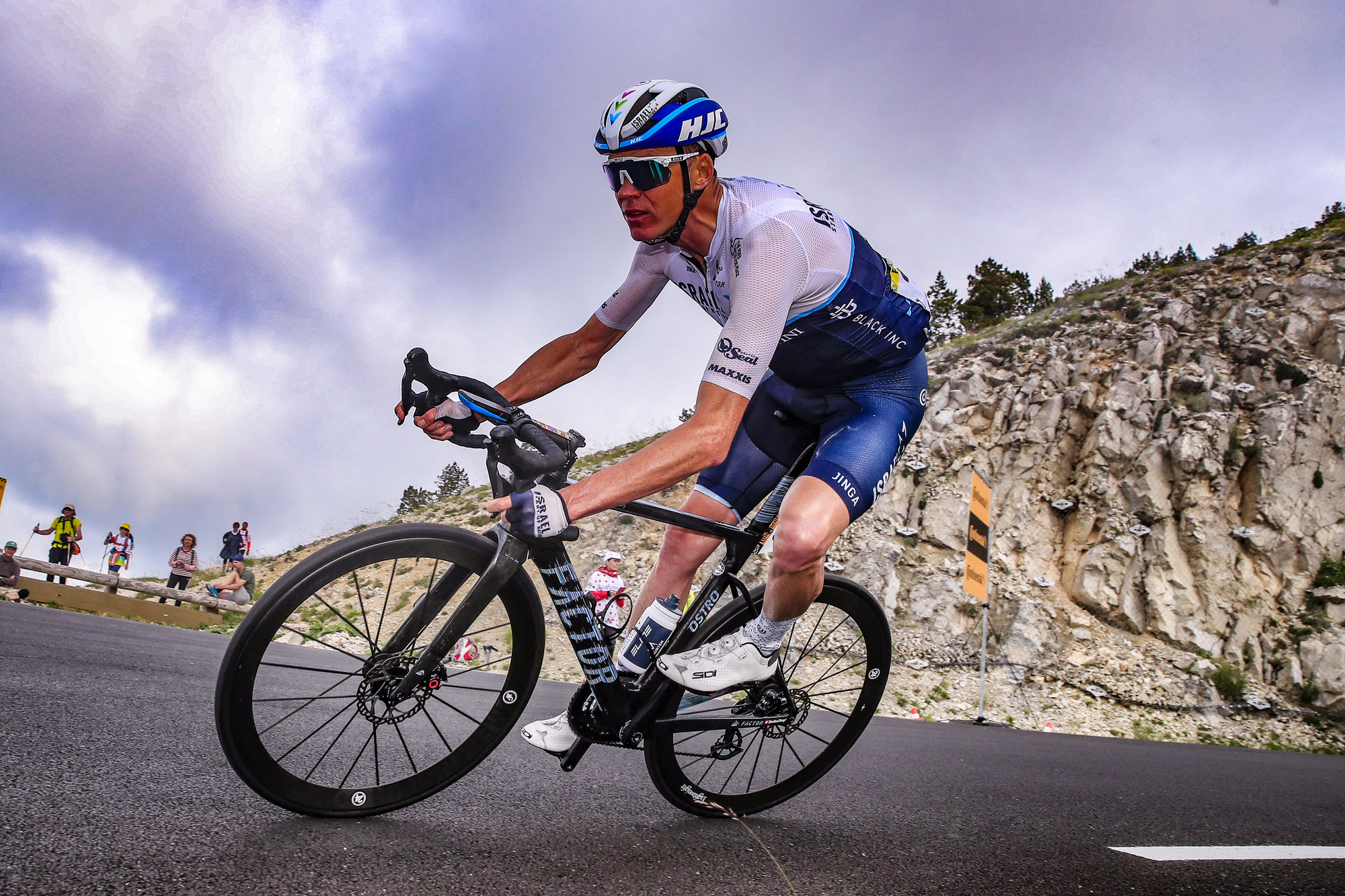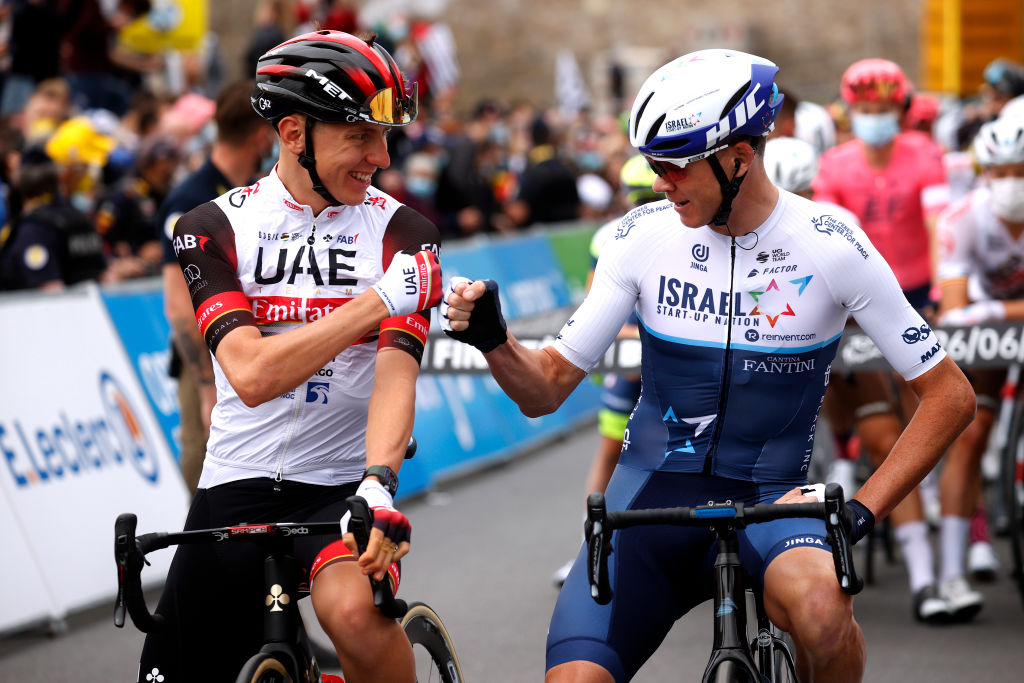Chris Froome: Suffering has given me more perspective about my career and life
Exclusive interview with four-time Tour de France winner, who is still driven by the hope of a fifth yellow jersey

It's easy to write off Chris Froome. He’s 36, full of scars from his terrible 2019 crash, and has yet to show signs of returning to anywhere near his best.
Yet, when Froome speaks to Cyclingnews during an exclusive end-of-season interview, it’s easy to sense his continued determination to get back to the level that won him the Tour de France four times between 2013 and 2017, the Vuelta a España in 2011 and 2017, and the Giro d’Italia in 2018.
Froome always appears courteous and in control - a well-educated boarding school boy who seems too kind to be a Grand Tour winner - but his personal ambition shines through. It brought him from Africa to Europe in search of a professional contract in 2007, it pushed him to fight Bradley Wiggins for leadership status at Team Sky, and it later helped him fight back against suspicions of doping after excess levels of Salbutamol were found in his samples from the 2017 Vuelta.
Froome needed all this resilience during his recovery and rehabilitation after the crash at the 2019 Critérium du Dauphiné. He nurtured it to set the personal goal of winning a fifth Tour de France, which in turn drove him through the pain barrier in the gym after operations to insert and then remove the pieces of metal that held his fractured femur together.
Froome endured a hard moment of realism when he was forced to accept he would not be competitive at this year’s Tour de France but he insists "the fundamentals of my physiology haven’t changed" and still hangs onto that dream of a record-equalling fifth yellow jersey.
"There’s no guarantee that I can win another Tour, a fifth Tour, after what happened and what I’ve been through. I know that, but it remains my goal. That’s what drives me to give 100 per cent," he tells Cyclingnews, unflinchingly responding to any doubters.
"If that’s in 2022, the year after, or the year after that, it’s what I’m going to keep working towards until it becomes apparent that it is not possible. That’s what gets me on my bike every day. As long as I see progression in my work, then I’m going to believe it’s still achievable and I’m going to keep working for it.
The latest race content, interviews, features, reviews and expert buying guides, direct to your inbox!
"Suffering has given more perspective about my career and my life. It’s made me so grateful for the position I’m in. I’ve had a second chance to be a professional rider. I know not many get that, so I’m more grateful than ever and that has given me the motivation to get back to my old level."

Froome’s mantra may seem far-fetched considering his results so far, but he is sincere. Placings on paper tell little of a rider's life, their physical and mental problems, or how races evolved within a wider team strategy.
He struggled with leg strength differences in the first half of the season, his right leg refusing to return to previous levels despite a winter spent working in the Red Bull Athlete Performance Center in California. He then crashed hard on stage 1 of the Tour de France but still battled on to reach Paris.
He overcame some digestion problems in the summer and was unable to ride the Vuelta a España but then raced until mid-October. He wasn’t just making up the numbers in the final races; he was working so he can start the winter on the front foot and continue to pursue his dreams in 2022.
"I was gravely injured in that crash two years go but it was in June that I felt the injuries were behind me. I see that moment as the zero point in my road to recovery and being back to my full self. Before, I was in negative territory because my right leg simply wasn’t where it needed to be," he explains.
"I’m still working in the gym and doing rehab but now my focus is on the bike side of things and rebuilding my race condition. Seeing things that no one else sees in my progress has kept me really motivated. I’ve seen my right leg get stronger and stronger and seen my numbers get closer and closer to where they need to be and almost in equilibrium."
Few people noticed, but Froome made the selection during the Milano-Torino one-day race in early October when Deceuninck-QuickStep attacked in the crosswinds. He then worked to help Michael Woods on the climbs to Superga before pulling off so could end his season after Il Lombardia and the Coppa Agostoni with a smile on his face.
"The second half of the season was a lot more fun because I’ve focused on getting back to where I was pre-crash," he says. "I’m seeing the gains more and more. I’ve still got a way to go but I’ve been up front again. I’ve been in the front of splits rather than hanging on the back for dear life."
Suffering through the Tour de France
Froome's return to the Tour de France was far less enjoyable but was fundamental to his recovery and perhaps to his future ambitions.
He was not selected by Ineos Grenadiers for the 2020 Tour de France but moving to Israel Start-Up Nation ensured he was on the start line in Brest in June. Despite not being competitive for the overall classification, Froome was optimistic because he’d crossed the 'zero point' of his recovery.
However, his plans went up in the air as soon as the race began, hitting the deck in the mass crash on the opening stage.
"I seemed to be moving in the right direction, then the crash on stage 1 at the Tour knocked me for six," he explains, recalling the pain and emotion.

"Making it back to the Tour had been such a big goal for me. I’d been thinking about getting back to the Tour start line ever since the crash in 2019, it was something that drove me on. To get there again was a big achievement. Then to suddenly crash on stage 1 was hard to take."
Nevertheless, Froome battled on, suffering up the likes of Mont Ventoux - scene of former glories - to make sure he reached Paris.
"I would have probably pulled out in other races, or in other Tours, with injuries of that extent. The crash left me in a lot of pain. I was completely bruised all down by my left hip and my glute for weeks after the crash, and I could still feel pain in my ribs when I reached Paris and rode on the Champs Élysées cobbles.
"I stayed in the Tour and suffered to make it to Paris. But I wanted to get the rhythm of the Tour in my legs so I went deep. Making it to Paris was an important personal victory."
Pushing on and working for 2022
Froome is aware of the social media critics and those who have written him off. He has even called them out and taken a stand - a sign of his maturity and leadership position within the peloton.
He is a decade older than the new generation of Tour de France contenders and is aware that professional cycling has changed massively since his crash in June 2019.
He expresses his admiration for the way Tadej Pogačar, winner of the past two Tours, handles all the pressure and expectation but also defends his own generation, refuting the idea they are ready for the cycling knackers yard.
Some of the older riders like Alejandro Valverde, Riche Porte and Geraint Thomas are still performing, all winning in 2021, which "gives me hope", Froome says.
"It’s not that the new level of the young guys is 20 per cent higher than everyone else. The older guys are still there or there abouts. It’s logical to me that if I can get back to my former level, then I can race with these guys."

Froome will spend time at home in the south of France with his young family rather than take an exotic holiday this winter. He will be at an Israel Start-Up Nation get-together in Israel in November and then do some charity rides for Best Buddies but he is already thinking about next season.
He refuted reports that he is earning €5 million a season, removing any financial pressure for him to be a Tour de France contender. Everything changed when he left the well-managed and massively-funded comforts of Ineos Grenadiers, meaning he had to adapt and learn how to work with a new set-up of coaches, sponsors, directors and teammates.
"I’ve definitely been dealing with a lot this year, there’s been a lot on my plate," he says.
"Changing teams was a factor because I changed all the people around me, my equipment, the way I work, my coach and even the way I train. But as a team we’ve stepped up a level. Just recently we had Tom Van Asbroeck and Guillaume Boivin finish in the top-10 at Paris-Roubaix, Alessandro De Marchi wore the pink jersey at the Giro d’Italia and Dan Martin won a big mountain stage. Woodsy [Michael Woods] was also affected by the early crashes in the Tour de France but fought on and wore the polka-dot jersey.
"Everyone is working hard and we’re closing the gap to the biggest teams, while also helping some of the younger riders coming up via the team’s academy. That all gives me extra motivation."
As for Froome himself, that ambition still burns bright and keeps those dreams alive.
"I raced deep into October knowing that racking up 68 race days and a final block away from home will carry me better into 2022," he says.
"I’m going to keep pushing on and keep working to make more improvement, hoping for more progression. I’m still happy to do it all over again in 2022."

Stephen is one of the most experienced member of the Cyclingnews team, having reported on professional cycling since 1994. He has been Head of News at Cyclingnews since 2022, before which he held the position of European editor since 2012 and previously worked for Reuters, Shift Active Media, and CyclingWeekly, among other publications.